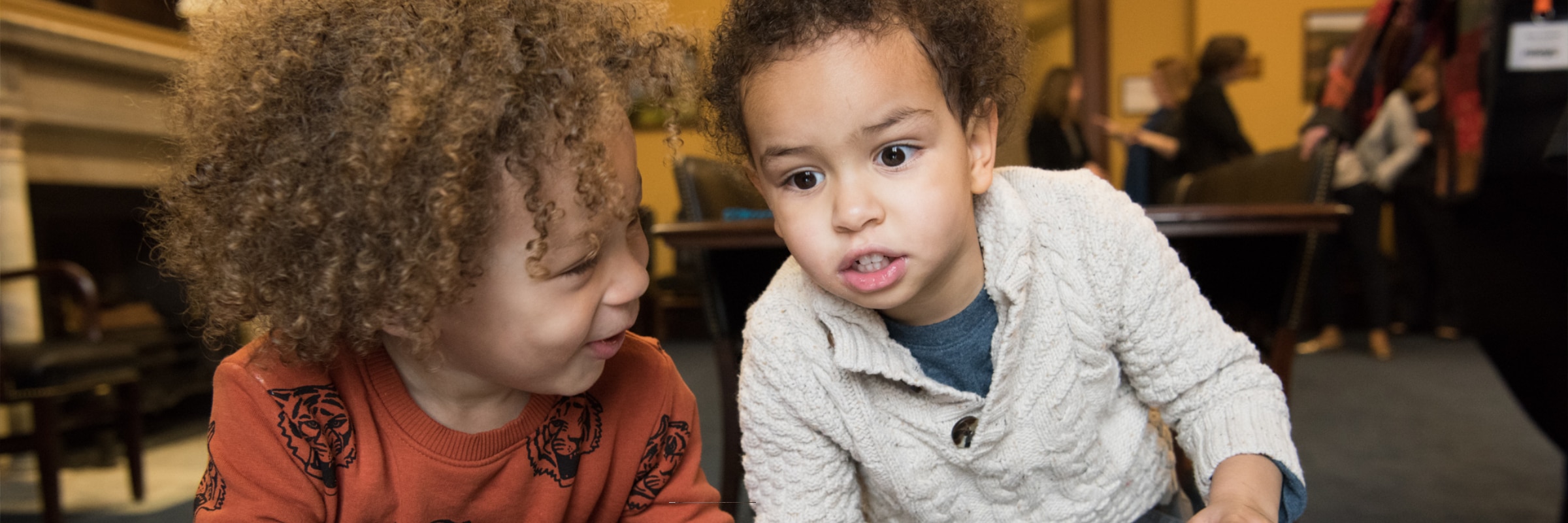Over the weekend, the federal government narrowly avoided a shutdown, when Congress passed a continuing resolution (CR) just hours shy of the end of fiscal year 2023.
The federal government now has 45 days – until November 17, to pass a budget. If they fail to do so, Congress will either need to pass yet another CR or run the risk of triggering a shutdown of the federal government. A government shutdown can have devastating consequences on federally funded programs that support the daily needs of many people in this nation, particularly children, youth, and their families. For example, one of the immediate casualties of a shutdown is the Head Start program, striking a blow to our nation’s youngest generation. Head Start is a federally funded early childhood program that provides education, health, and nutrition services to low-income children from birth to age 5. With the Department of Health and Human Services unable to grant Head Start funds during a shutdown, children nationwide stand to lose access to the critical services Head Start provides to ensure their healthy development. Like all other federal programs, the longer the shutdown continues, the more people that will be impacted. The consequences are not isolated to the present; they ripple into the future, affecting the educational foundations of these young lives.
Additionally, as Congress works to pass a full budget there are federal programs that are at risk of harmful cuts. Earlier this year, the House Appropriations Committee proposed cutting funding to the Special Supplemental Nutrition Program for Women, Infants, and Children (WIC) for Fiscal Year (FY) 2024. Across the country, nearly seven million mothers and young children rely on this program’s supplemental vouchers for essential food, including infant formula. The program serves nearly half of all infants in the United States. As the country still continues to recover from the COVID-19 pandemic, programs like WIC are becoming more in demand. According to the National WIC Association, WIC has experienced a 17% increase in child participation since 2020, and the program is expected to serve more than 6.6 million pregnant and postpartum women, infants, and young children in FY24. Cutting WIC funding would go against a decades-long commitment to providing WIC with the funding needed to serve all eligible participants.
In addition to the proposed cuts on WIC, the $24 billion of pandemic-era relief offered to childcare programs through the American Rescue Plan expired on September 30. Emergency spending to address this cliff in childcare funding was not addressed in the CR passed by Congress, meaning childcare providers, parents, and caregivers must continue to wait for this critical funding. Without robust funding to address this cliff, the Century Foundation anticipates that more than 70,000 childcare programs will likely close, resulting in up to 3.2 million children potentially losing their childcare spots. According to our 2023 State of America’s Children report, data shows there is already a licensed child care supply gap of 3.6 million slots, the country cannot afford to lose more from what was already an inadequate supply of quality affordable child care.
The Appropriations Process Going Forward
The threat of a shutdown and the panic surrounding this past weekend’s activities was triggered due to Congress’s inability to come to an agreement on funding levels for the government. However, it is important to note that even before the CR was passed, Congress had not been prioritizing young people in this budgeting process. The proposed fiscal year (FY) 2024 spending bills in the House aim to limit access to vital resources like food, housing, health care, child care, and education. Additionally, there are tax package proposals in the House that disproportionately benefit large corporations and the wealthiest, while providing no benefits and stability to children and families.
While Congress bought more time with the CR to negotiate spending levels and a potential tax package, we cannot allow Congress to bring harm to children and families by cutting funding to critical federal programs. This is why Children’s Defense Fund co-led a letter to the President and congressional leaders, calling on them to prioritize investments in young people in the FY24 appropriations process and any tax packages going forward.
In the face of uncertainty around the FY24 appropriations process, our nation’s young people depend on us to unite, bridge our differences, and prioritize their well-being. It’s time for our leaders to put aside partisanship and work toward a full federal budget that safeguards the future of our nation—our children and youth.

